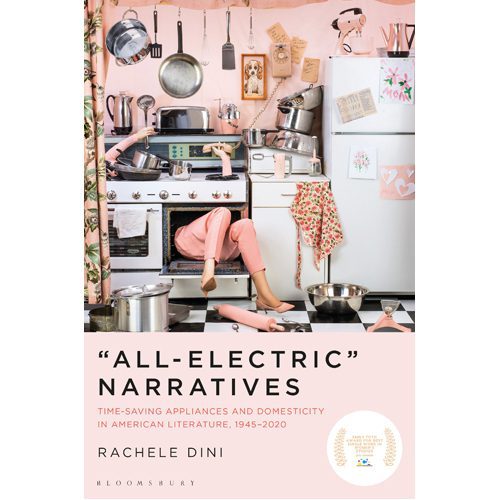
“All-Electric” Narratives: Time-Saving Appliances and Domesticity in American Literature 1945-2020 – Hardback
Backorder Item Notice
Please note the expected date shown above is a guideline only. Backorder items will typically arrive within the next 2 months, however, in some instances they may take longer. Any orders that contain a Backorder Item will not be dispatched until all items in the order are available. Please keep this in mind before you place any orders that contain both in-stock and Backorder items. Please place a separate order to receive in-stock item(s) sooner!
For more information please see our Backorder FAQs.
Synopsis
“All-Electric” Narratives is the first in-depth study of time-saving electrical appliances in American literature. It examines the literary depiction of refrigerators, vacuum cleaners, oven ranges, washing machines, dryers, dishwashers, toasters, blenders, standing and hand-held mixers, and microwave ovens between 1945, when the “all-electric” home came to be associated with the nation's hard-won victory, and 2020, as contemporary writers consider the enduring material and spiritual effects of these objects in the 21st century.
The appropriation and subversion of the rhetoric of domestic electrification and time-saving comprises a crucial, but overlooked, element in 20th-century literary forms and genres including Beat literature, Black American literature, second-wave feminist fiction, science fiction, and postmodernist fiction. Through close-readings of dozens of literary texts alongside print and television ads from this period, Dini shows how U.S. writers have unearthed the paradoxes inherent to claims of appliances' capacity to “give back” time to their user, transport them into a technologically-progressive future, or “return” them to some pastoral past. In so doing, she reveals literary appliances' role in raising questions about gender norms and sexuality, racial exclusion and erasure, class anxieties, the ramifications of mechanization, the perils and possibilities of conformity, the limitations of patriotism, and the inevitable fallacy of utopian thinking-while both shaping and radically disrupting the literary forms in which they operated.
